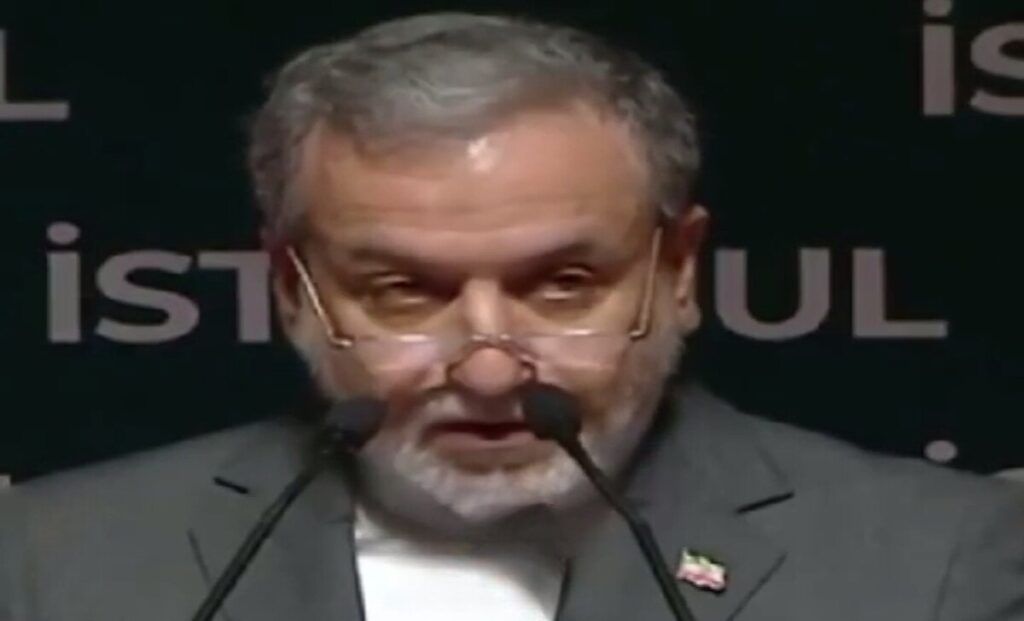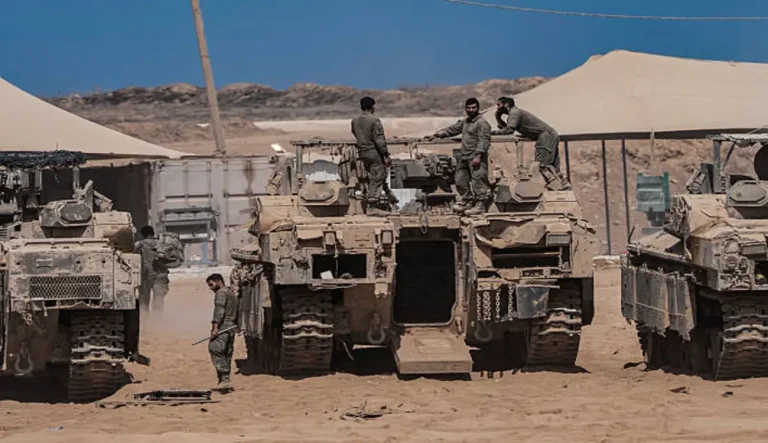
Iran’s top diplomat signals unannounced strategies in response to escalating threats from the United States.
(Epicstorian News) — A senior Iranian diplomat Abbas Araghchi, while addressing the United States action, hinted that Iran’s response could involve attacks on U.S. military facilities in the region or the closure of the Strait of Hormuz.
Araghchi made the comment in a high-stakes press conference held in Istanbul, where he addressed the increasing tensions between Iran and the United States.
“We have various options available to us,” he said.
Araghchi, Iran’s current Foreign Minister and a former nuclear negotiator, made it clear that Tehran’s strategy includes deliberate ambiguity.
His comments come amid renewed tensions in the Middle East and an intensified American military presence.
Iran’s Response Strategy Keeps Western Allies Guessing
When pressed for details, Araghchi added,
I am not in a position to reveal our best moves. I will not announce what we will do in response to U.S. aggression.
The senior diplomat’s refusal to clarify Iran’s next steps aligns with the country’s traditional approach of strategic uncertainty.
Analysts suggest this may be intended to deter preemptive actions from the U.S. and its allies.
For further analysis, see
Al-Monitor.
Strait of Hormuz in Spotlight as Iran Weighs Next Steps
The Strait of Hormuz, a critical passageway for global oil transport, remains a focal point in discussions surrounding Iran’s response.
Though Araghchi did not explicitly mention closing the strait, his omission has left the option open to interpretation.
Experts warn that any attempt to block the strait could severely disrupt energy markets worldwide.
For context, read this Reuters report.
Araghchi’s Remarks Reflect Tactical Diplomacy in Tense Geopolitical Climate
Known for his role in the 2015 nuclear deal negotiations, Araghchi’s statements reflect a calculated diplomatic stance.
Iran’s posture suggests an interest in projecting power without triggering immediate conflict.
As U.S. forces increase their presence in the Gulf and following recent airstrikes in the region, Iranian officials appear to be weighing
multiple avenues of action. See the latest developments in this
VOA report.
Iran’s Response Likely to Involve Coordinated Diplomatic and Security Measures
While military options are being considered, Iran’s response could also include cyber operations, regional alliances, and political pressure tactics.
The International Crisis Group
notes that Iran increasingly relies on asymmetric tools to influence outcomes across the Middle East.
Also Read: Israeli civilian homes hit in escalating regional conflict with Iran
Araghchi’s carefully worded comments signal Iran’s ongoing commitment to strategic depth, making any concrete response from Tehran
difficult to predict in the short term.

